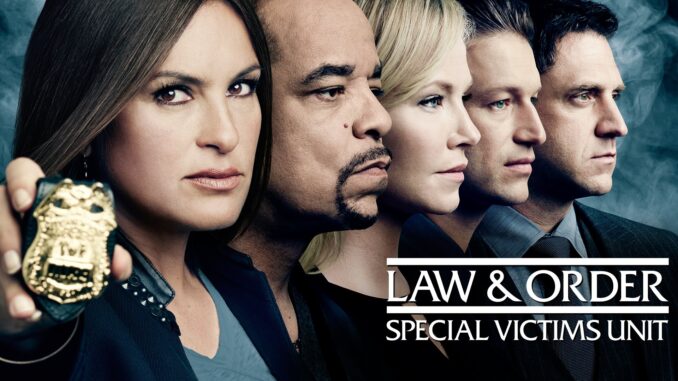
The rhythmic clang of an unseen gavel, the deep thrum of a resonant bass, the iconic "dun-dun" – for decades, these sounds have been the heralds of justice, fear, and the relentless pursuit of truth on our screens. They are the sonic signatures of the Law & Order universe, a television institution that has etched itself into the very fabric of popular culture. Now, in a move that has sent a collective ripple of excitement through its devoted fanbase, April promises a crossover event that feels less like a simple ratings stunt and more like a significant narrative and emotional homecoming: Law & Order: Special Victims Unit will join forces with the resurgent flagship show, Law & Order.
This isn't merely a meeting of characters; it's a convergence of legacies, a blending of two distinct yet fundamentally interconnected veins of the same enduring organism. The original Law & Order, the venerable mothership, returned to our screens after a decade-long hiatus, a phoenix from the ashes, bringing with it the familiar two-part structure that dissected crime from both the police and prosecution perspectives. With Jack McCoy, the unyielding district attorney, once again at its helm, the show reasserted its role as a procedural bedrock, grappling with contemporary issues through its classic, no-nonsense lens. It’s the intellectual heart of the franchise, dissecting the nuances of law and morality with surgical precision.
Then there is Law & Order: Special Victims Unit, a behemoth in its own right, now in its unprecedented 25th season. SVU has carved its own indelible path, venturing into the darker, more emotionally charged territory of sex crimes. It is a show built on the bedrock of trauma, resilience, and the unyielding empathy of its captain, Olivia Benson. Mariska Hargitay's portrayal has transcended mere acting; Benson has become a cultural icon, a symbol of advocacy for victims, a beacon of strength in a world often too eager to dismiss or shame. Where the flagship dissects the legal process, SVU delves into the profound human cost, the long shadows cast by heinous acts, and the slow, arduous path toward healing. It is the beating heart, often bruised but never broken.
The prospect of these two worlds colliding is more than just an expanded case file; it's an opportunity for a richer, more layered narrative tapestry to unfurl. Imagine the steel and grit of the original's police force, accustomed to the methodical collection of evidence and the dispassionate pursuit of facts, encountering the visceral, emotionally charged landscape that Benson and her squad navigate daily. Picture the measured, almost philosophical legal arguments of McCoy’s team, suddenly imbued with the raw, personal stories of victim advocacy that are SVU's bread and butter. The crossover offers a narrative bridge, allowing the intricate legal strategies to buttress the profound human drama, and vice-versa, enhancing both in the process.
This event is also a powerful statement on the enduring relevance of the Law & Order universe. In an era of streaming fragmentation and genre experimentation, these shows, with their unwavering commitment to justice in a complex world, continue to resonate. They offer a ritualistic comfort, a sense of order imposed, however fleetingly, on the cacophony of modern crime and moral ambiguity. The crossover underscores their shared DNA – the fundamental belief in the justice system, flawed though it may be, as a necessary mechanism for societal repair. It's a testament to the idea that while the specific nature of crimes and the cultural landscape may evolve, the pursuit of righting wrongs remains a constant.
As April approaches, anticipation hangs heavy in the air, not just for a well-crafted television event, but for a moment of shared experience. It’s an acknowledgment of the characters we've welcomed into our homes, the moral dilemmas that have sparked countless conversations, and the "dun-dun" that, against all odds, continues to signify both the end of an investigation and the beginning of another, deeper truth. This crossover isn't just a television schedule entry; it's a celebration of a quarter-century of storytelling, a testament to the enduring power of justice, and a reminder that, in the world of Law & Order, the pursuit never truly ends.
